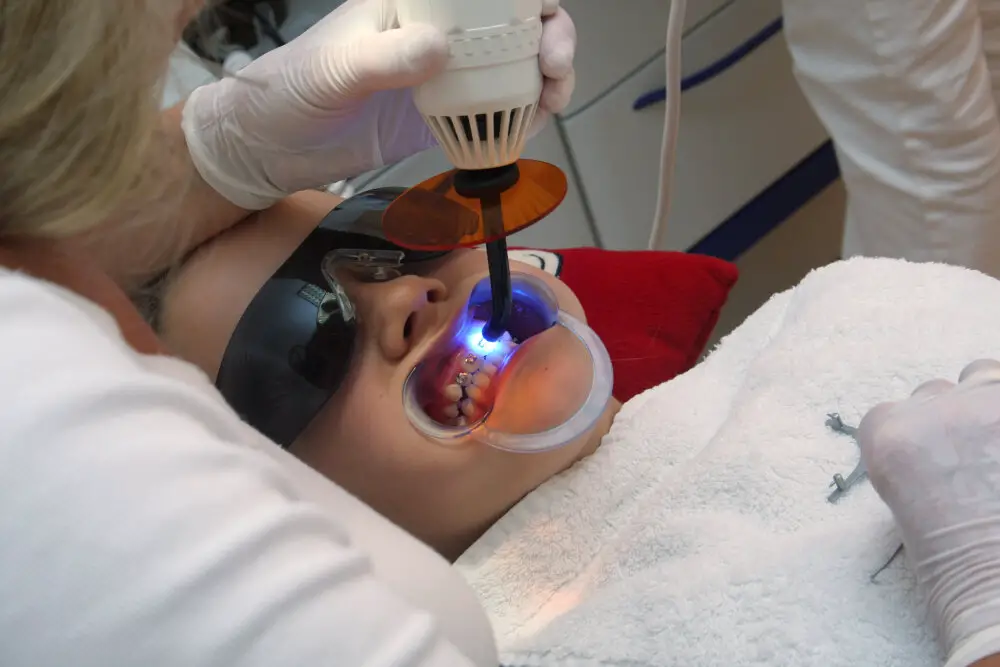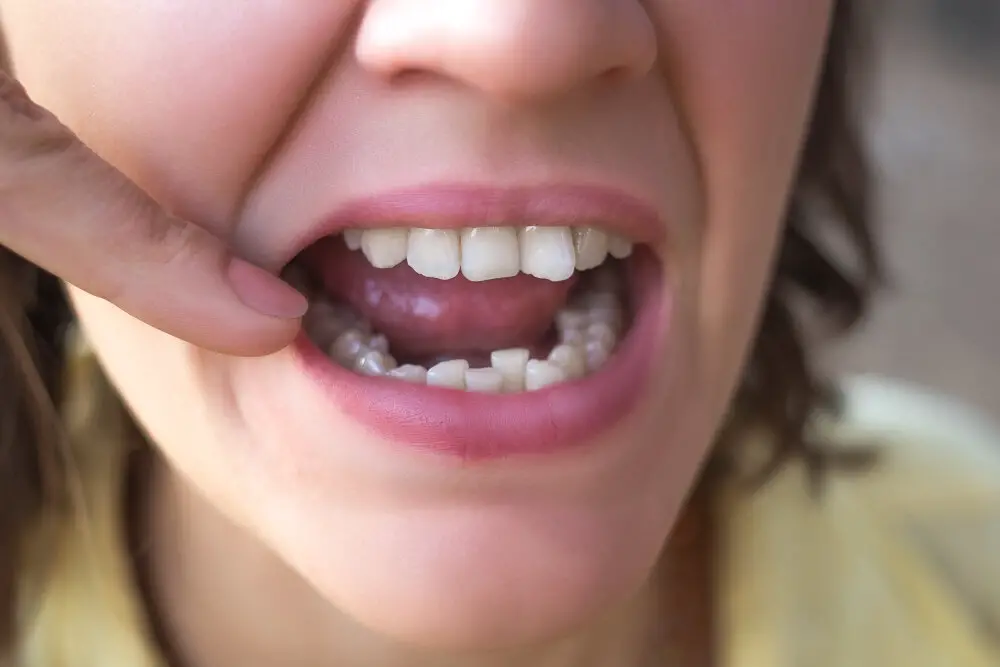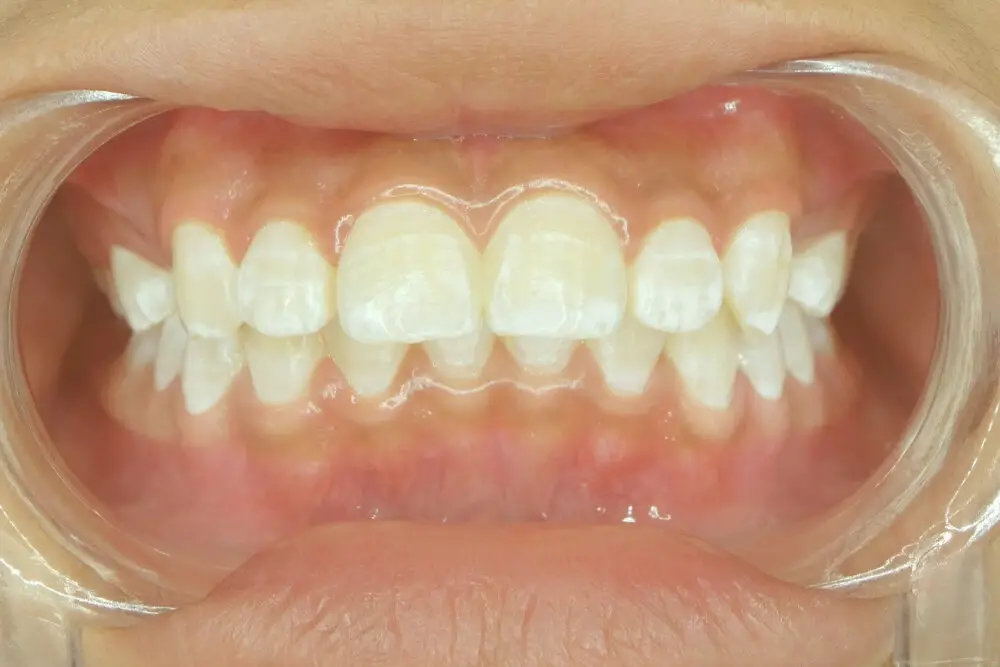Teeth Whitening: How Often Should You Do It?

Having a bright and dazzling smile is something that most people desire. A white set of teeth can boost self-confidence and make a person feel more attractive. Teeth whitening is one of the most popular cosmetic dental procedures that people use to enhance their teeth’s appearance. However, many people are unsure of how often they should whiten their teeth to maintain that bright and shining smile. Teeth whitening is a process that involves removing stains and discoloration from the teeth’s surface using various techniques. It is a safe and effective way to improve your teeth’s appearance and can be done at home or at a dental office. However, it is essential to understand that teeth whitening is not a one-time solution. Factors such as diet, lifestyle, and age can affect the frequency at which one needs to whiten their teeth. In this article, we will explore how often you should whiten your teeth and the best practices to maintain a bright and healthy smile.
Teeth whitening is a cosmetic dental procedure that involves removing stains and discoloration from teeth. There are various methods of teeth whitening including in-office treatments, at-home kits, and natural remedies. In-office treatments are typically the most effective and involve the use of a bleaching agent applied to the teeth by a dental professional. At-home kits, on the other hand, are a more affordable option and involve the use of whitening gels, strips, or trays. Natural remedies like baking soda and hydrogen peroxide can also be effective, but should be used with caution as they can potentially damage tooth enamel. It’s important to note that teeth whitening is not a permanent solution and should be repeated periodically to maintain results. The frequency of whitening depends on various factors such as diet, oral hygiene habits, and the method used.
Maintaining healthy and white teeth is crucial for both physical and psychological well-being. White teeth enhance the appearance of a person’s smile and boost their confidence levels. It also has a positive impact on one’s social and professional life. Good oral hygiene not only prevents bad breath, gum diseases, and tooth decay but also reduces the risk of serious health problems such as heart disease, stroke, and diabetes. Regular brushing, flossing, and dental check-ups are essential for maintaining healthy teeth and gums. Teeth whitening can also help to remove stains and discoloration caused by lifestyle habits such as smoking, drinking coffee, tea, or red wine. However, it is important to consult a dentist before undergoing any teeth whitening treatment to avoid any potential damage to the teeth and gums.
Types of Teeth Whitening

There are two types of teeth whitening: in-office or professional teeth whitening and at-home or over-the-counter teeth whitening. In-office teeth whitening is considered the most effective method as it is performed by a dental professional who uses higher concentrations of bleaching agents that can whiten teeth in just a single session. This type of teeth whitening is ideal for those who want to see immediate results and have severe tooth discoloration. However, it is also the most expensive method and may not be covered by dental insurance. On the other hand, at-home teeth whitening is a more affordable option that can be done in the comfort of your own home. This method involves the use of teeth whitening kits that can be purchased over-the-counter in drugstores or online. These kits typically contain a lower concentration of bleaching agents and are applied using trays or strips that fit over the teeth. At-home teeth whitening may take longer to see results, but it is a good option for those who want to whiten their teeth gradually and maintain the results over time. It is important to follow the instructions carefully and consult with a dental professional before starting any teeth whitening treatment.
There are several teeth whitening methods available to brighten your smile, each with its own unique benefits and drawbacks. One of the most popular methods is in-office bleaching, where a dentist applies a high-concentration peroxide gel to your teeth and uses a special light to activate it. This method usually takes only one or two appointments to achieve dramatic results. Another option is at-home bleaching, which involves wearing custom-made trays filled with a lower-concentration peroxide gel for several hours a day. This method can take several weeks to achieve noticeable results, but it is more convenient and less expensive than in-office bleaching. Other teeth whitening methods include over-the-counter whitening strips and gels, as well as natural remedies like oil pulling and baking soda. It’s important to speak with your dentist before starting any teeth whitening treatment to determine the best method for your specific needs and to ensure that you aren’t putting your oral health at risk.
There are several methods available for teeth whitening, each with its own set of pros and cons. One of the most popular methods is in-office whitening, which provides quick results and is done by a professional. However, it can be quite expensive, and the intensity of the treatment can cause sensitivity or discomfort. Over-the-counter whitening kits are another option, which are more affordable and can be done at home. However, they may not be as effective as in-office whitening and can also cause sensitivity. Natural remedies such as baking soda or apple cider vinegar can also be used, but they may take longer to see results and can also damage the enamel if used excessively. Ultimately, it’s important to consider the benefits and drawbacks of each method before deciding on a teeth whitening routine.
After considering various teeth whitening methods, it is recommended to choose a method that suits your needs and lifestyle. For those who have a busy schedule, quick and easy solutions like whitening toothpaste or strips could be the best option. However, if you want a more effective and long-lasting result, professional teeth whitening treatments provided by a dentist would be a better choice. It is important to keep in mind that overdoing any method can damage your teeth, so it is best to consult with a dental professional to determine the frequency of teeth whitening that is safe and effective for you. Additionally, maintaining good oral hygiene habits such as regular brushing, flossing, and avoiding staining foods and drinks can help prolong the effect of teeth whitening.
Factors to Consider

When considering teeth whitening, there are several factors to take into account. Firstly, it is important to evaluate the current state of your teeth. If you have sensitive teeth, it may not be advisable to whiten them too frequently, as this can cause further sensitivity and discomfort. Additionally, if you have any dental restorations such as fillings or crowns, these will not whiten with the same products as natural teeth, and may need to be replaced if you wish to achieve a uniform shade. Smoking, drinking dark-colored beverages such as coffee or red wine, and certain medications can also affect the effectiveness of teeth whitening treatments, and may require more frequent touch-ups. Another factor to consider when deciding how often to whiten your teeth is your personal aesthetic goals. Some individuals may be satisfied with achieving a subtle improvement in the whiteness of their teeth, while others may want a more dramatic change. Depending on your starting point and desired outcome, your dentist can recommend a suitable treatment plan and frequency of touch-ups. It is also important to note that while teeth whitening can be an effective way to enhance the appearance of your smile, it is not a substitute for good oral hygiene habits such as regular brushing and flossing, and routine dental check-ups. By considering these factors, you can make an informed decision about how often to whiten your teeth to achieve the results you desire while maintaining optimal oral health.
The frequency of teeth whitening can vary depending on several factors. Firstly, the type of whitening treatment used can impact how often it needs to be repeated. For example, professional in-office treatments may last longer than at-home treatments, so they may not need to be done as frequently. Secondly, individual lifestyle choices can affect the frequency of teeth whitening. People who frequently consume staining substances such as coffee, tea, and tobacco may need to whiten their teeth more often. Finally, genetics and age can play a role in how quickly teeth yellow or stain, meaning some individuals may need more frequent whitening treatments than others. Ultimately, it is important to consult with a dental professional to determine the best whitening schedule for your individual needs.
Age, genetics, diet, lifestyle, and dental hygiene habits are all factors that can play a role in the color of your teeth. As we age, our teeth naturally become darker due to the enamel thinning and the dentin underneath becoming more visible. Genetics also play a role in the natural color of your teeth, with some people having naturally whiter teeth than others. Diet and lifestyle choices, such as consuming dark-colored foods and drinks or smoking, can also lead to discoloration. However, maintaining good dental hygiene habits such as brushing and flossing regularly can help prevent stains and keep your teeth looking their best. When considering teeth whitening, it’s important to take these factors into account and consult with a dental professional to determine how often it should be done for optimal results.
Several factors can affect the results of teeth whitening, including the type of whitening treatment used, the severity of discoloration, the frequency of treatment, and the individual’s oral hygiene habits. Some people may require more frequent treatments if they consume staining foods and beverages or if they smoke. Additionally, the effectiveness of the treatment may depend on the concentration of the whitening solution and the length of time it is applied. It is important to consult with a dentist to determine the best treatment plan and to follow proper oral hygiene practices to maintain the results of the whitening treatment.
How often should you do it?

Achieving a bright, white smile is a common goal for many people. Teeth whitening is a popular cosmetic dental procedure that can help to remove stains and discoloration from your teeth. However, it is important to note that teeth whitening should not be overdone. Overuse of teeth whitening products can lead to tooth sensitivity, gum irritation, and even enamel damage. So, how often should you do it?The answer to this question ultimately depends on the individual. Factors such as the current condition of your teeth, the type of whitening product you are using, and the frequency of use can all play a role in determining how often you should whiten your teeth. In general, it is recommended to whiten your teeth no more than once every six months. However, it is important to consult with your dentist before starting any teeth whitening regimen to ensure that it is safe and effective for you. Your dentist can also provide guidance on the best products and methods to use for your specific needs.
When it comes to teeth whitening, it is important to follow guidelines on how often to do it. While a bright white smile is desired by many, overdoing it can lead to damage to the tooth enamel and sensitivity. Generally, it is recommended to whiten teeth no more than every 6 months to a year. It is also important to take into consideration the type of whitening method being used, as some methods may be more abrasive than others. Consulting with a dentist can provide valuable insight into what method and frequency of teeth whitening is best for each individual’s unique situation. Ultimately, it is important to prioritize oral health and not sacrifice it for the sake of a brighter smile.
Teeth whitening has become increasingly popular over the years, with many seeking to enhance their smiles. However, dental professionals recommend that teeth whitening should not be overdone. It is recommended that individuals undergo teeth whitening once or twice a year, depending on the severity of discoloration and the type of treatment used. Overuse of teeth whitening products can damage the enamel of the teeth, leading to increased sensitivity and even tooth decay. It is also important to consult with a dental professional before undergoing any teeth whitening treatment to ensure that it is safe for the individual’s teeth and overall oral health.
When deciding on the frequency of teeth whitening, there are several factors that need to be considered. Firstly, the type of teeth whitening method being used will affect how often it can be done. For example, professional in-office whitening treatments are typically more potent and can last longer than at-home treatments. Secondly, the level of staining on the teeth should also be taken into account. If teeth are heavily stained, more frequent whitening treatments may be necessary to maintain a bright, white smile. Finally, individual lifestyle habits such as smoking, drinking coffee or tea, and consuming highly pigmented foods can all contribute to staining and may require more frequent whitening. It’s important to consult with a dental professional to determine the best teeth whitening frequency for your specific needs.
Risks and Precautions

When it comes to teeth whitening, there are a few risks associated with the process. Overuse of teeth whitening products or using them incorrectly can lead to tooth sensitivity, gum irritation, and even enamel damage. It’s important to follow the instructions provided with the whitening products and not exceed the recommended usage or application time. Additionally, it’s crucial to consult with a dentist before starting a whitening regimen, especially if you have any preexisting dental conditions or sensitivity issues. They can recommend the best products and advise on the safest methods for achieving your desired results. To minimize any potential risks, there are some precautions you should take when considering teeth whitening. Firstly, it’s important to maintain good oral hygiene and address any underlying dental issues before beginning a whitening treatment. This includes regular brushing, flossing, and dental check-ups. Secondly, opt for professional teeth whitening treatments instead of over-the-counter products, as they are safer and more effective. Lastly, limit the frequency of your whitening treatments and take breaks in between sessions to allow your teeth to recover. By taking these precautions, you can safely achieve a brighter and healthier smile without compromising your dental health.
Overwhitening teeth can lead to several risks and side effects that can compromise the health of your teeth. One of the most common risks is tooth sensitivity, which occurs when the enamel of the teeth becomes too thin due to excessive whitening. This can cause discomfort and pain when consuming hot or cold foods and drinks. Overwhitening can also damage the gums, causing them to recede and exposing the roots of the teeth. In severe cases, overwhitening can lead to enamel erosion, leading to tooth decay and even tooth loss. It is essential to follow the recommended guidelines for whitening treatments to avoid the risks and side effects associated with overwhitening teeth.
When it comes to teeth whitening, there are a few precautions that you should take. First, it’s important to consult with your dentist to ensure that your teeth and gums are healthy enough for the procedure. You should also avoid overusing whitening products, as this can lead to tooth sensitivity and damage to the enamel. Additionally, be sure to follow the instructions carefully and do not leave whitening products on your teeth for longer than recommended. It’s also a good idea to avoid foods and drinks that can stain your teeth, such as coffee, tea, and red wine, as well as tobacco products. By taking these precautions, you can safely and effectively whiten your teeth for a brighter, more confident smile.
Teeth whitening is a cosmetic dental procedure that involves the use of chemicals to remove surface stains from teeth. While effective in brightening smiles, teeth whitening can also have side effects such as tooth sensitivity and gum irritation. To minimize risks and side effects, it is important to follow the instructions provided by your dentist or the manufacturer of the whitening product. This includes using the product for the recommended amount of time, avoiding overuse or prolonged exposure to the whitening agent, and using a desensitizing gel or toothpaste to alleviate any discomfort. It is also important to maintain good oral hygiene habits, such as brushing and flossing regularly, to prevent future staining and protect the health of your teeth and gums. Consulting with a dental professional before beginning any teeth whitening regimen can also help determine the best course of action for achieving a brighter, healthier smile.
Having a bright, white smile can significantly impact your appearance and boost your confidence. Teeth whitening is a popular cosmetic dental procedure that can effectively remove stains and discoloration from your teeth, making them appear brighter and whiter. Not only does teeth whitening improve the aesthetic appeal of your teeth, but it can also improve your oral health by removing plaque and tartar buildup. Although teeth whitening is a safe and effective procedure, it is essential to follow the recommended guidelines to avoid over-whitening and damaging your teeth. With proper care and maintenance, teeth whitening can provide long-lasting results and help you achieve a beautiful and healthy smile.
After evaluating the various factors that affect teeth whitening, it is recommended that individuals whiten their teeth no more than twice a year. Overuse of teeth whitening products can lead to enamel erosion, tooth sensitivity, and gum irritation. It is important to consult with a dentist before starting any teeth whitening regimen to ensure that it is safe and effective. Additionally, practicing good oral hygiene habits such as brushing twice a day, flossing, and avoiding staining foods and drinks can help maintain a brighter smile for longer periods of time. Remember, a healthy and happy smile is not just about the aesthetics, but also about the overall health of your teeth and gums.
While there are many teeth whitening products available over-the-counter, it is essential to consult a dental professional before opting for any whitening treatment. A dentist can examine your teeth and provide personalized advice on the best whitening option for you. Factors such as teeth sensitivity, oral health, and existing dental work can affect the outcome of the procedure. Additionally, a dentist can monitor the progress of the treatment and ensure that it does not harm your teeth or gums. Consulting a dental professional can help you achieve a brighter, healthier smile safely and effectively.
Conclusion

In conclusion, teeth whitening can be a great way to enhance the appearance of your smile and boost your self-confidence. However, it is essential to approach this process with caution and avoid overdoing it. The frequency of teeth whitening depends on various factors such as the method used, the strength of the whitening agent, and the condition of your teeth. While some people may be able to whiten their teeth every few months, others may need to wait longer between treatments to avoid sensitivity and damage to their teeth. It is always best to consult with a dental professional before starting any teeth whitening regimen, as they can provide personalized advice and guidance on how to achieve a brighter, healthier smile safely. Remember, moderation is key when it comes to teeth whitening, and taking good care of your teeth with regular brushing, flossing, and dental checkups is just as important for maintaining a beautiful smile in the long run.







